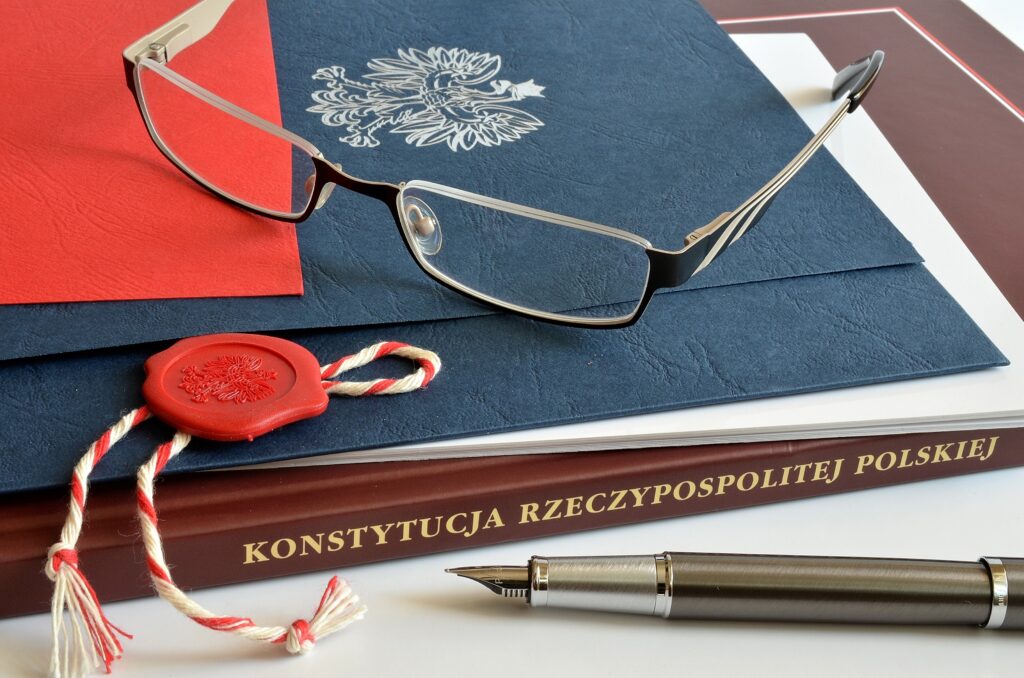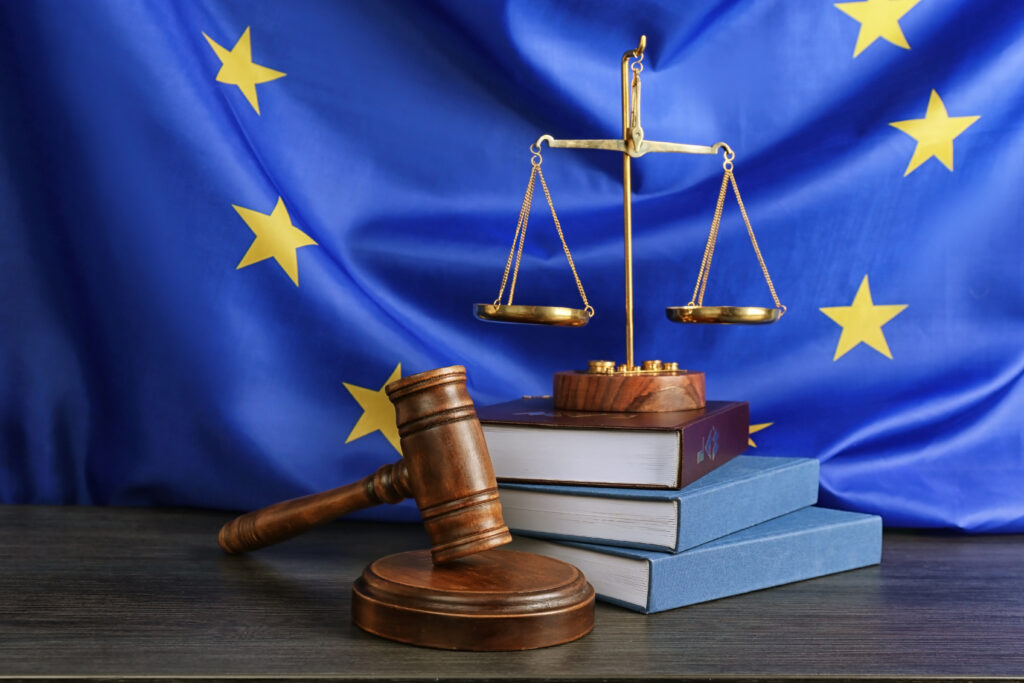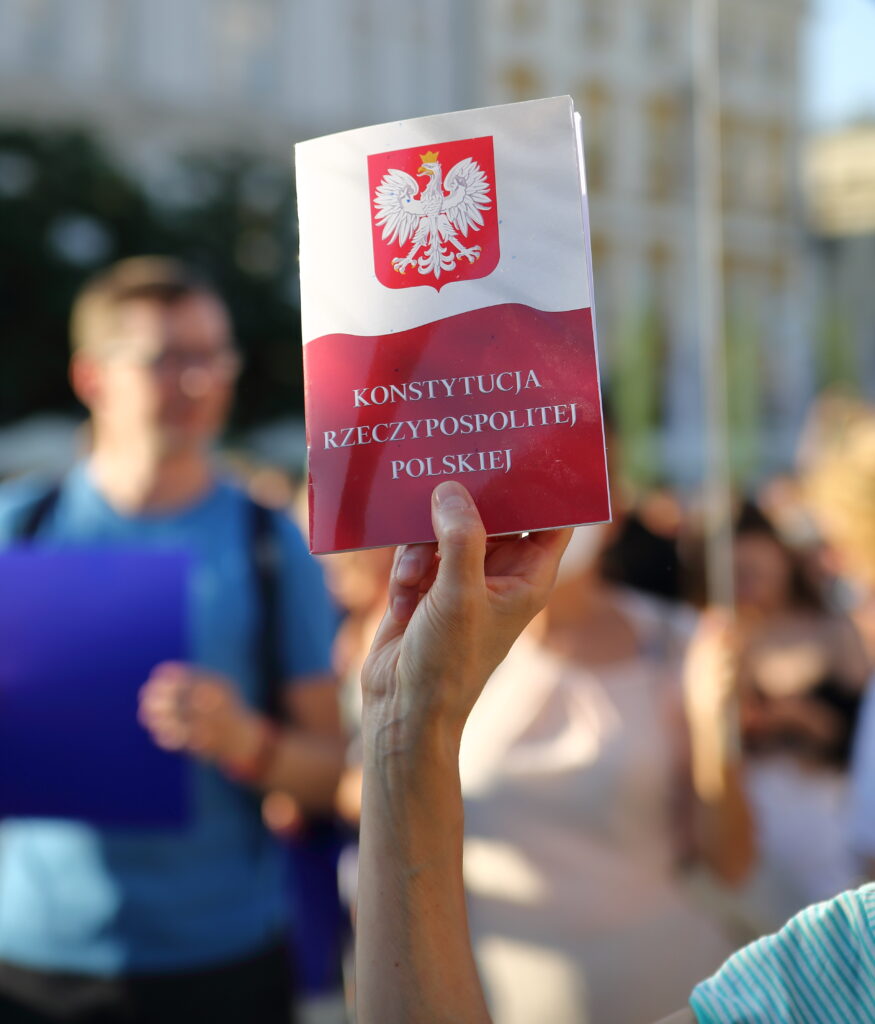Work is underway in the European Union on a reform of the treaties, which could result in the effective abolition of the sovereign Polish state. How will this affect one of the principles of the political system, namely democracy?
The European nation in place of the Polish nation
The construction of a centralised European Union, i.e. a European state, means that the 1997 Constitution of the Republic of Poland must be amended. Specifically, Article 4 will be repealed, meaning that the nation will lose its supreme position, cease to be sovereign, and its representatives, i.e. MPs and senators, will lose their attribute of representing the sovereign. They will therefore no longer represent the sovereign, as this position will formally be assumed by the so-called European nation, which will be represented by the European Parliament. The Sejm and Senate will therefore represent the Polish nation in the areas of competence granted to Poland under the political changes made in the Treaties on European Union and on the functioning of the EU. These will therefore be local matters, as foreign policy and defence will become the responsibility of the EU, and these determine the sovereignty of a state. This also means that, taking into account the other changes to the Treaties, Poland will lose its real autonomy in deciding on the direction of its development and will therefore lose its political decision-making power. It will only retain management powers, which will have to be determined by the interests of the strongest EU country, i.e. Germany. This entity, which would replace the Republic of Poland and formally have a status similar to that of today’s German Länder, would not have the power to act in its own interest and, as such, would not perform the functions of a state. However, a European state would not perform such functions either, because there is no European nation on whose behalf it could act. The EU entity as a state cannot exist and function effectively because there is no European nation. It would be a purely formal entity that would not fulfil the most important characteristic of a nation, which is national identity based on a cultural and political community. This would create an internally contradictory arrangement in the system of governance, as power would be exercised by an entity – the EU – incapable of representing the interests of the “European nation”, because no such nation exists, and the nations, which are currently organised into their own states, would not have the power to act in this capacity.
The establishment of EU citizenship and the recognition that, by virtue of being a citizen of a Member State of the Union, everyone is also a citizen of the Union, has a purely formal effect. In fact, European citizenship has not influenced the formation of a European ethos. Nations arise through a very long process of developing a sense of cultural and historical community, which consists of a shared historical experience, language and religion, to name the most important elements. It also includes the common political goals of all European nations, which have never been achieved in any period of European history. The same is true of the European Union. Therefore, there is no binding force, which is an essential factor for the effective establishment of a European state.
The above findings confirm that as a result of the establishment of the EU state, Poland will lose its current position as a sovereign and independent state and will become a subordinate and dependent country in all political respects. The new constitution of the Republic of Poland will be deprived of two fundamental principles, namely the principle of the supremacy of the Nation (expressed in Article 4(1) of the Basic Law) and the principle of independence regulated in Article 5. The removal of these principles will result in the loss of sovereignty and, consequently, of independence as closely related fundamental characteristics of a nation state. It must also lead to the loss of the ability to preserve and develop democratic values, as these arise and can only be effectively developed in conditions of self-determination. Freedom is the basis for these values.
Democracy in the Polish constitutional system
The Constitution of the Republic of Poland does not explain the concept of democracy. It does not establish ‘democratic principles’ and uses the term only in two contexts.
The Preamble to the Constitution reads: ‘Out of concern for the existence and future of our homeland, having regained in 1989 the ability to determine its fate in a sovereign and democratic manner, we, the Polish Nation […] hereby establish the Constitution of the Republic of Poland […]’, thus requiring the use of democratic methods of decision-making in matters concerning Poland. There is no doubt that this refers to the exercise of supreme power by the Nation, and thus the realisation of the political subjectivity of citizens. The second context is indicated by Article 2, which states that ‘The Republic of Poland shall be a democratic state lawfully governed, implementing the principles of social justice’. The Polish state is to be not only legal, but also democratic, which in the first place means the supreme authority of the Nation in the exercise of power.
The axiological restraint of the Polish Constitution is only apparent, because the point is not to multiply principles, but to ensure that the text of the basic law regulates those individual rights that determine the subjectivity of citizens. How, then, should we understand the democracy to which the Polish Constitution refers, and does it contain any specific regulations that could determine its meaning?
It must be clearly stated that the concept of democracy found in the Constitution does not refer to the form of government, i.e. the distinction between a monarchy and a republic, which is what we most often refer to. The essence of democracy is not a choice between a monarchical head of state and one elected by universal suffrage, as in Poland, or by, for example, a joint chamber of parliament or other similar political body. If democracy means political agency, it also means the freedom of the individual in relation to authority. Historically, this primarily meant in relation to the monarch, but over the years it has also come to mean in relation to parliament. In other words, in relation to all authority.
When can we talk about democracy?
A very good example of what democracy is and how it should be protected is the history of Great Britain, which until recently was an example of a country where the individual enjoyed exceptional protection of freedom and the system of government remained monarchical. This model of democracy, which originated in England in the 17th century and was further developed in the following centuries, is so important to the country’s political system that it is based on the idea of combining limited monarchy and republicanism with the principle of separation of powers.
It is worth noting that this model was used in the Constitution of 3 May 1791 to regulate relations between parliament and the executive, i.e. the king, but the course of events prevented it from becoming firmly established in practice. Freedoms may be threatened not only by arbitrary decisions of the king, but also by the Sejm. Hugon Kołłątaj, in his treatise ‘Political Law of the Polish Nation’, wrote: “Woe to the nation whose justice and righteousness do not prescribe the limits of power: in this way, even in a republic, one can be under the despotism of men. There is no clearer division of government into good and bad. […] in a bad government, even under a republic, one can be a slave; in a good one, even under a monarch, one can be free.”These apt words do not exempt us from the duty to ensure that all principles guaranteeing the compatibility of the system of government with individual freedom, which is not unlimited and presupposes a duty to act for the common good of the nation and the state, are enshrined in the constitution and subsequently implemented.
In summary, democracy only exists when the individual is free and, exercising his freedom, has a real but also legally guaranteed opportunity to exercise his rights. Such power is provided only by one’s own government, in whose establishment the individual has a share – the citizen who is the subject of sovereignty and therefore has the constitutional status of a sovereign.
Otherwise, they become a dependent entity. Is this thesis valid? Are we sure that only in a state ruled by the people – the sovereign – do we have guarantees of freedom, and therefore democracy? In an attempt to answer these questions, let us consider the most pressing issues of recent times, which are important not only for Polish democracy.
The EU does not react to violations
The foundation of democracy is freedom of speech, which is regulated by Article 54(1) of the Constitution, stating that ‘everyone shall have the freedom to express their views and to obtain and disseminate information’. According to Article 54(2), preventive censorship of the media and licensing of the press are prohibited, but it is permissible to introduce a requirement to obtain a licence in advance to operate a radio or television station.
Contrary to the above provisions, Telewizja Polska was taken over by the government of Prime Minister Donald Tusk, who thus excluded the free transmission of information through public television. Recently, private television stations have been threatened with the withdrawal of their licences. These actions have not been met with a negative assessment by the institutions of the European Union, even though Article 2 of the Treaty on European Union, one of the fundamental values on which the Union is founded is democracy, as well as human dignity, freedom, equality, the rule of law, respect for human rights, pluralism, non-discrimination, tolerance, justice, solidarity and equality between women and men. These values constitute the axiological foundation of Union law, which (in particular in view of the practice of the Union’s relations with the Republic of Poland in recent years) must give rise to strong criticism of the absolute discrepancy between the law in force and the practice of its application. Shouldn’t the violation of the law, which has become an everyday occurrence in Poland’s struggling democracy, be grounds for initiating proceedings under Article 7 of the Treaty on European Union? However, it is difficult to expect the EU institutions to protect democratic values when it is this organisation that encourages and even attempts to force the introduction of same-sex marriage in Poland, and also strongly advocates restricting freedom of expression, which is protected in Poland by the aforementioned Article 54(1) of the Constitution.
Censorship under the guise of combating ‘hate speech’
This year, a particularly drastic example of Donald Tusk’s government’s policy of restricting freedom of speech is the amendment to the Criminal Code, which broadens the grounds for criminal liability for so-called hate speech. The amendment was passed amid fierce opposition from many opinion-forming circles in Poland, but the ruling majority managed to pass the bill amending the Criminal Code, and only the President blocked its entry into force by submitting a request to the Constitutional Court for a review of the constitutionality of these provisions. At the same time, it should be noted that European law does not require the introduction of specific protection against hate speech. This does not mean, however, that the European Parliament and the European Commission have not attempted to recognise hate speech as a European crime, but so far no such legislation has been adopted due to opposition expressed in the Council by Poland and Hungary.
The main objection raised against the amendment was that it restricted freedom of expression (or, as we most often say, freedom of speech) by introducing grounds for liability for its violation that do not meet the basic requirements arising from the constitutional obligation to ensure sufficient clarity of legal regulations. The requirement of clarity and precision of legal provisions, resulting from the principle of a democratic state ruled by law laid down in Article 2 of the Constitution, is of particular importance in the case of criminal liability, as it allows for the precise determination of the limits of permissible behaviour. If the limits of freedom of speech are not precisely defined, this precludes the exercise of this fundamental human freedom.
The particular importance of this freedom is best expressed by Professor Bogusław Wolniewicz: Freedom of speech is the cornerstone of democracy. […]: freedom of speech extends as far as democracy, and where freedom of speech ends, democracy ends. For Western civilisation, freedom of speech is a distinctive feature, unique to it[1].
In my work, I used the text of R. Buttewicke’s lecture, ‘The Constitution of 3 May against the background of modern Europe. A synthesis of republicanism and monarchism’, in: ‘The memory of a moment that has returned to us… Third of May lectures at the Constitutional Tribunal’, ed. A. Rzepliński, K. Budziło, A. Jankiewicz, Warsaw 2016.
Prof. Anna Łabno – constitutionalist, Tarnów Academy, member of the Scientific Council of the Ordo Iuris Institute
Read also:
Sovereign, independent and democratic. The foundations of the Republic – part I
Image source: Adobe stock.
[1] B. Wolniewicz, Freedom of speech in Western civilisation, (in:) Faces of freedom of speech, Materials from the symposium at the College of Social and Media Culture, Toruń, 24 January 2004, published by the College of Social and Media Culture, Toruń, 2005.



